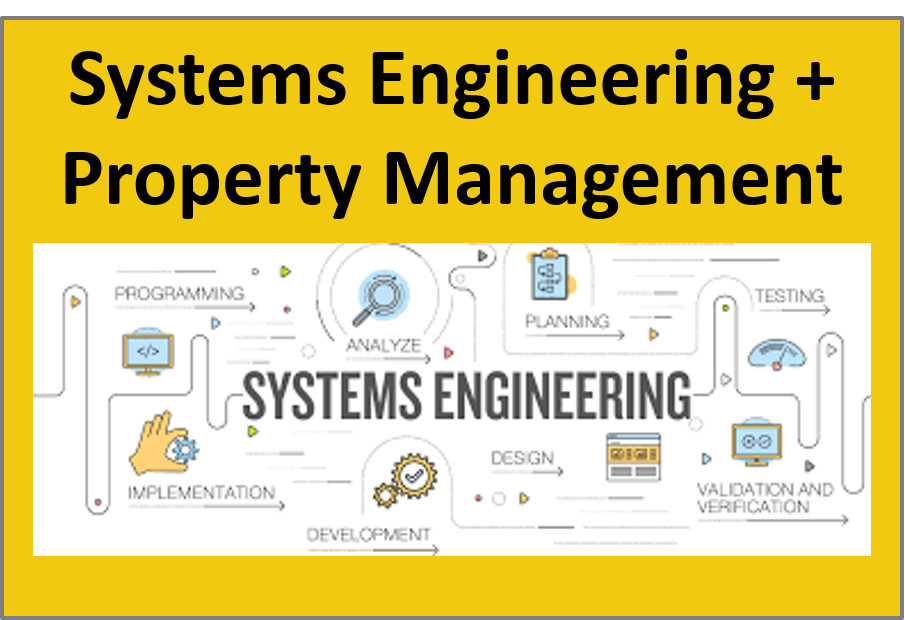Systems engineering helps you manage complexity, minimize risks and act efficiently. It enables you to fix broken processes and create repeatable processes. It is very relevant to property management executives who want to enlarge their portfolios.
In this article I will provide an introduction to Systems Engineering for property management executives. I will also link to sources for those of you who are interested in learning more about these concepts.
What is Systems Engineering?
Here’s the Wikipedia description of Systems Engineering:
Systems engineering focuses on how to design, integrate, and manage complex systems over their life cycles.
The systems engineering process is a discovery process that is quite unlike a manufacturing process. A manufacturing process is focused on repetitive activities that achieve high quality outputs with minimum cost and time. The systems engineering process must begin by discovering the real problems that need to be resolved, and identifying the most probable or highest impact failures that can occur – systems engineering involves finding solutions to these problems.
Which Systems do Property Managers Manage?
Property management executives need to think of their business as a set of systems. For examples, you have systems that:
- Attract a prospective tenant and turn them into a happy tenant.
- Create a tenant experience that results in renewals, referrals and great reviews.
- Take capital from investors and turn it into predictable returns.
- Hire motivated individuals and unlock their creativity and potential
RentViewer and Systems Engineering
The RentViewer approach for improving property management processes is grounded in Systems Engineering. My undergraduate degree is in a related field, Industrial & Operations Engineering, and I have spent most of my career designing software and analytics solutions for optimizing systems.
Systems engineering helps you manage complexity, minimize risks and act efficiently.
As you become familiar with our Property Management Process Improvement Toolkit, you will notice that it is based on Systems Engineering and the Theory of Constraints.
Links:
Industrial Engineering Overview (Wikipedia)
https://en.wikipedia.org/wiki/Industrial_engineering
Stanford Management Science & Engineering course requirements


